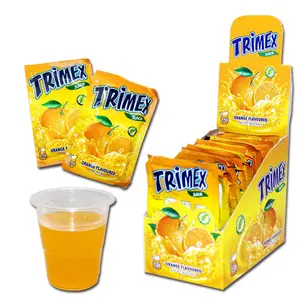Popular in your industry

































































Related Searches:














































































































































Top categories
About salt importers of bangladesh
For salt importers of Bangladesh, understanding the nuances of the product is crucial to making informed purchasing decisions. Salt, a fundamental mineral, is pivotal in various industries, from culinary to deicing. Its properties and applications are as diverse as the businesses that require it.
Types and Grades of Salt for Importers
Importers must discern between the different types of salt available. There are primarily two categories: industrial salt and edible salt. Industrial salt, often in the form of large crystals or pellets, is used for deicing roads and in manufacturing processes. Edible salt, which includes table salt and sea salt, is refined for consumption. The grade of salt, such as refined vacuum sodium chloride or PDV iodized industry salt, determines its purity and suitability for specific applications. Within these categories, there are further distinctions such as rock salt, evaporated salt, and solar salt, each with unique characteristics. Rock salt, for instance, is mined and typically has higher mineral content, making it ideal for industrial use. Evaporated salt is obtained through the evaporation of seawater and is known for its high purity, which is preferred in food processing.
Structural Composition and Color Variations
The structural composition of salt is predominantly sodium chloride (NaCl). However, the presence of other minerals can affect its color and utility. While the classic white salt is most common, there are variations like blue salt, which contains a small amount of an anti-caking agent to ensure it remains free-flowing. The color can be an indicator of purity and intended use, especially for salt importers of Bangladesh who need to meet specific industry standards. The physical components of salt, such as crystal size and shape, also play a role in its application. For instance, fine salt dissolves quickly and is preferred in cooking, while coarse salt is ideal for processes that require slower dissolution rates, such as curing.
Materials and Properties
The materials used in salt production are critical to its quality. For edible salts, materials such as iodine are added for nutritional benefits. Anti-caking agents are included to prevent clumping. The choice of these materials is governed by their compatibility with sodium chloride and their non-reactivity to ensure the salt retains its desired properties. For industrial salts, materials are chosen to enhance functionality, such as those that facilitate melting ice at lower temperatures for deicing salts.
Business Usages and Applications
Salt's business usages are extensive. In Bangladesh, road salt, known for its snow-melting capabilities, is a crucial import for countries experiencing harsh winters. This deicing salt is a safety necessity for maintaining clear roads. In the culinary industry, iodized table salt is essential for human health, preventing iodine deficiency. The chemical industry also relies on salt as a raw material for producing chlorine and caustic soda. In water treatment, salt is used in softening hard water. These applications create significant business value by ensuring public safety, enhancing food quality, and facilitating industrial processes.
Functions and Tasks
Salt is designed to perform a variety of functions. In food, it preserves and flavors. In industrial settings, it is used in processes such as tanning and dyeing. In colder regions, its function extends to maintaining road safety through deicing. Each type of salt is tailored to perform specific tasks effectively, whether it's maintaining the osmotic balance in food preservation or lowering the freezing point of water on roads.
Distinctive Features and Capabilities
The distinct characteristics of salt include its solubility, hygroscopic nature, and ionic properties, which are leveraged in different applications. For instance, the hygroscopic nature of salt makes it excellent for moisture control in products. The unique selling points of high-purity salts, such as those used in pharmaceuticals, lie in their consistency and lack of contaminants, setting them apart from competitors.
Benefits and Positive Outcomes
The benefits of quality salt include improved health outcomes when iodized salt is used in diets to prevent deficiencies. In industrial applications, the right kind of salt can lead to more efficient processes and better end-products. For salt importers of Bangladesh, providing a product that meets these needs can lead to improved customer satisfaction and loyalty.
How to Use and Maintain Salt
Effective use of salt depends on the application. For culinary uses, understanding the impact of grain size on flavor and dissolution is key. In industrial applications, maintaining the purity of salt by storing it in a dry environment is crucial to prevent clumping and degradation. For deicing, applying salt before snowfall can prevent ice from bonding to the surface, making it easier to remove.
Choosing and Installing the Right Salt Solutions
Selecting the right salt involves understanding the specific needs of the application. For food processing, purity and grain size are paramount. For industrial uses, the chemical composition and mineral content may be more important. Installation, in terms of salt, refers to setting up the proper storage and handling systems to maintain its quality over time.
Target Audience and Meeting Needs
The target audience for different types of salt varies widely. Food-grade salt targets the food industry and consumers looking for nutritional value. Industrial salts cater to a range of sectors from manufacturing to municipal services. Each product is designed to meet the specific needs and preferences of these audiences, whether it's the granule size for food preparation or the melting point for deicing salts.
How can importers ensure the quality of salt?
Importers can ensure quality by requesting detailed specifications and possibly samples before purchase. Certifications and lab analyses can provide assurance of the salt's purity and suitability for its intended use. Regular communication with suppliers on Alibaba.com to understand their production and quality control processes is also key.
What are the packaging options available for bulk salt orders?
Packaging options for bulk orders include sturdy 25kg and 50kg bags, which are manageable for smaller-scale operations. For larger industrial needs, 1000kg bulk bags are common. These options ensure that the salt remains protected from moisture and contamination during transit and storage.
How do importers navigate the logistics of salt importation?
Importers must navigate a complex logistics landscape that includes regulatory compliance, transportation, and storage. Partnering with experienced freight forwarders and understanding the import regulations of Bangladesh are crucial steps. Importers should also consider the storage requirements of salt to prevent clumping and contamination.
For salt importers of Bangladesh, Alibaba.com serves as a gateway to a global market of suppliers, offering diverse types of salt to meet the varied needs of their clientele. By leveraging the platform's resources, importers can make strategic purchasing decisions that align with their business objectives.






















